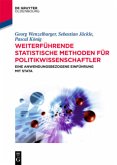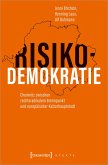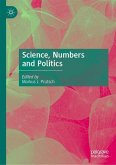Building on the strengths of the third edition, this highly regarded textbook continues to provide the best introduction to the strategies of comparative research in political science. Divided into three parts, the book begins by examining different methods, applying these methods to dominant issues in comparative politics using a wealth of topical examples from around the world, and then discusses the new challenges in the area. This thoroughly revised and updated edition features:
Additional contemporary case studies including the democratisation of technology and the Arab Spring;
Detailed discussion of regression analysis and diffusion;
More analysis of justice, inequality, and compliance;
Reflection on new methods and treatments of contemporary comparative politics.
Balancing reader friendly features with high quality analysis makes this popular academic text is essential reading for everyone interested in comparative politics and research methods.
Additional contemporary case studies including the democratisation of technology and the Arab Spring;
Detailed discussion of regression analysis and diffusion;
More analysis of justice, inequality, and compliance;
Reflection on new methods and treatments of contemporary comparative politics.
Balancing reader friendly features with high quality analysis makes this popular academic text is essential reading for everyone interested in comparative politics and research methods.
'This book fills a longstanding gap in the literature for a clear and concise primer on the purpose and methods of comparative politics. It is also an excellent starting point for scholars and students alike who wish to come to grips with the most important arguments, findings and methodological challenges in the study of democracy and human rights. Required reading for budding comparativists, it should also serve as a benchmark which seasoned scholars should regularly revisit.' - Robert Mattes, University of Strathclyde, UK.
'I have relied on this book for years to teach my masters students how to think through their methods choices. It provides a much-needed neutral overview of the trade-offs between Large-N and Small-N methods, presenting these options as the "methodological universe of the field" of comparative politics. The book presents complex material in a clear way - and is useful both in teaching and in my own research.' - Sherrill Stroschein, University College London, UK
'Todd Landman and Edzia Carvalho have written a genuine multi-method textbook. They introduce students into substantive issues through the lenses of contrasting methods. Pluralistic and reflexive, well-structured, thoughtful, and up-to-date, Issues and Methods in Comparative Politics nicely fulfils its didactic promise. Students will encounter a most stimulating guide to the contemporary study of politics.' - Andreas Schedler, CIDE, Mexico City
'I have relied on this book for years to teach my masters students how to think through their methods choices. It provides a much-needed neutral overview of the trade-offs between Large-N and Small-N methods, presenting these options as the "methodological universe of the field" of comparative politics. The book presents complex material in a clear way - and is useful both in teaching and in my own research.' - Sherrill Stroschein, University College London, UK
'Todd Landman and Edzia Carvalho have written a genuine multi-method textbook. They introduce students into substantive issues through the lenses of contrasting methods. Pluralistic and reflexive, well-structured, thoughtful, and up-to-date, Issues and Methods in Comparative Politics nicely fulfils its didactic promise. Students will encounter a most stimulating guide to the contemporary study of politics.' - Andreas Schedler, CIDE, Mexico City









